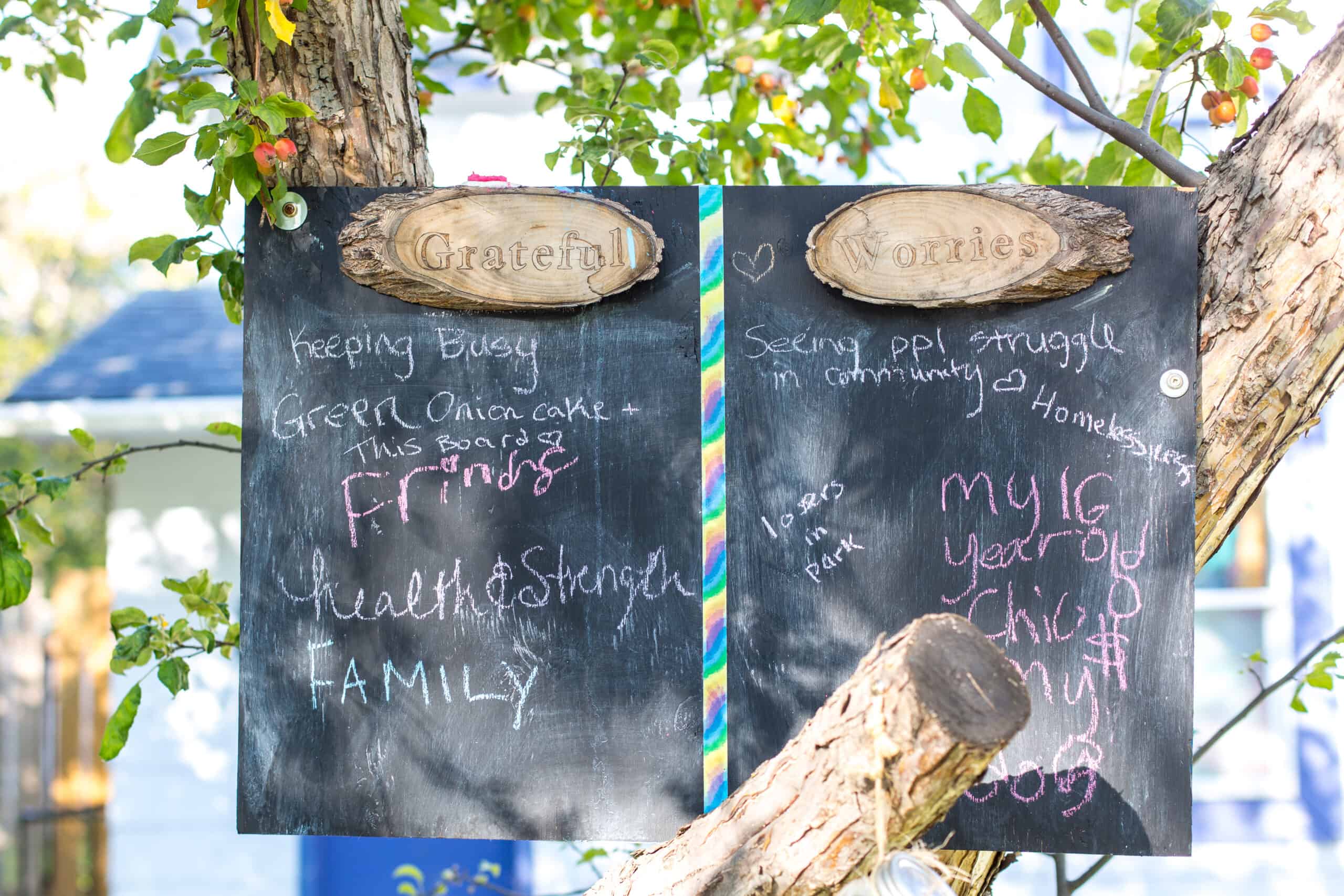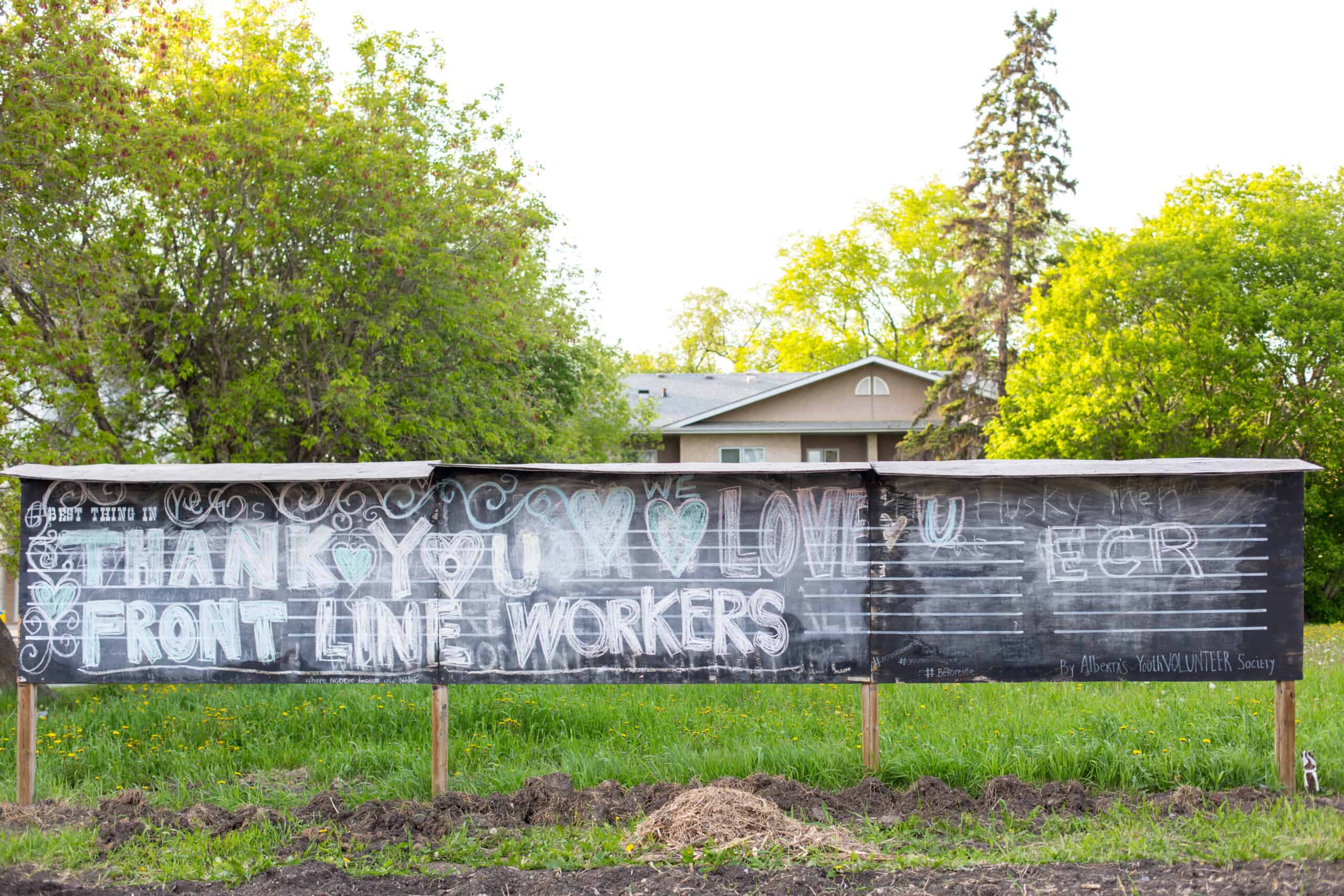Recording the pandemic’s history
Rebecca Lippiatt has continued to interview local residents about the effects of the pandemic throughout the second wave and up until fall of 2021. She completed Edmonton in the Time of Covid: the Waves Continue recently, and everything is now online.
Her goal is to document this important time in history so that people can look back at the pictures and stories and see how people lived through this pandemic.
“There were more people I wanted to interview,” explains Lippiatt. “In the first wave, there was still a sense of optimism. By the time I did this second set of interviews, a lot more challenging emotions were coming up.”
Lippiatt explains that many of the people she interviewed were angry with the government.
“Bureaucracy had set in. Public health measures were pushing against public opinion. It was more politicized.”
One segment of the population was still following the public health measures, while another segment of the population was pushing back against the health measures.
“In my opinion, it was predicated by people who didn’t want there to be a pandemic. It might curtail their ability to be social, to be with family. They were tired of social distancing. The trauma of isolation caused them to deny the fact that there was and still is a pandemic happening. Even people who were fine with following health measures were exhausted.”
The approach Lippiatt took this time was a little different.
“I really, really wanted to interview a nurse or a teacher because they were very much in the thick of things. It took me a long time to find these people.” She explains that because of the union agreement for nurses and the employment agreement for teachers, potential interview subjects couldn’t say anything.
“I eventually found two people who agreed to talk to me if I gave them anonymity.”
Lippiatt interviewed 33 local residents. Her interview subjects covered a wide range of people from all walks of life, such as a pharmacist, funeral director, student, librarian, and realtor.

After she completed the interviews, she realized she’d interviewed predominantly women, although it wasn’t an intentional approach.
“At least three-quarters of the interviews I did were with women,” she notes, adding that this approach is important for future historians. “Women’s history is often not told, or glossed over, or not written.”
The project took Lippiatt two years to complete.
“I received a grant from the Edmonton Heritage Council in March of 2021. I had intended to have everything gathered by December 2021. When it came to editing the stories, I hit a brick wall.” She explains the first project was easier to edit and then write the stories because the interviews were shorter. “In this one, people were very hungry to talk and had a lot to say. Most transcriptions ended up being 40 pages long.” She continues, “It took me a lot longer to decide what threads of one story to pursue. By the time I decided how to approach the stories, I was past my [initial] deadline.”
Although it took her a bit longer to complete than she wanted, it was worth it.
“I feel even more proud of this project because it was a deeper dive into how people were feeling. I think I got some stories that not everyone heard. These were not easy stories to tell.”
And Lippiatt thinks she may continue to work on documenting how the pandemic affected local residents.
“I might change the focus, though. I didn’t write about the vaccine pushback or the anti-vaccine protest.” She adds that she’d like to publish pictures she took of the trucking convoy and interview people about long COVID. “Some people have become significantly disabled. Their lives have become very narrow.”
Read the stories at yegcovidstories.com.







